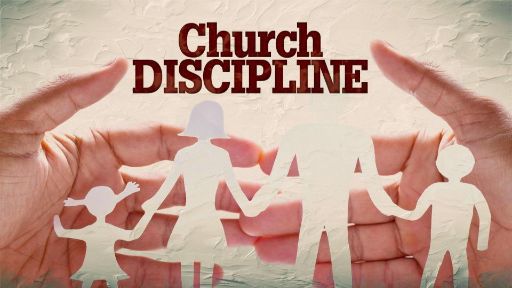-
Wolves In The Church
Contributed by Michael Martin on Nov 28, 2017 (message contributor)
Summary: How to spot and deal with troublemakers in the Church
(Acts 20:17-30) "shall grievous wolves enter in among you, not sparing the flock."
It was not unintentional that God chose to use the illustration of Shepherd, Sheep, and wolves, to speak of the church.
It is in fact a very accurate portrayal of life in the church.
The Lord speaks of Himself as the Shepherd of the Sheep, and those who would harm the sheep as wolves.
[John 10:11-14] "I am the good shepherd: the good shepherd giveth his life for the sheep.
But he that is an hireling, and not the shepherd, whose own the sheep are not, seeth the wolf coming, and leaveth the sheep, and fleeth: and the wolf catcheth them, and scattereth the sheep.
The hireling fleeth, because he is an hireling, and careth not for the sheep.
I am the good shepherd, and know my sheep, and am known of mine.
The term "Pastor", used in the Bible to describe Church Leaders, literally means "Shepherd".
And, the New Testament teaches that the Pastor is to shepherd the sheep...
In fact, our text was written to the Elders of the Ephesian church for this very reason (v. 17; 28-29).
Notice the THREE things the Apostle Paul warned the Elders to do (v.28):
1. Take heed unto yourselves!
> Preacher, be careful yourself.
> Wolves will attack the shepherd if they can get away with it.
> In fact, if they destroy the shepherd, they have the sheep.
2. AND to all the flock, over the which the Holy Ghost hath made you overseers.
> They were to protect the flock from wolves.
> They were to do this by feeding the church of God.
> Paul told them to so train the sheep that the wolf would have no advantage...
3. Watch out for wolves among your own selves (v. 29-30).
> There will be wolves AMONG YOU, from among the flock.
> Jesus said in [Matt. 7:15]:
"Beware of false prophets, which come to you in sheep’s clothing, but inwardly they are RAVENING WOLVES."
> Or, in other words: You may not be able to easily spot them, because they WILL BE WEARING SHEEP’S CLOTHING.
> They look like Christians, but they are RAVENING WOLVES!
Using this thought, I want to preach on:
"Wolves In The Church"
I. The Types of Wolves in the Scriptures.
A. Ravening Wolves.
1. Quoted by Jesus: "Inwardly they are raving wolves."
> [Eze. 22:27] "Her princes in the midst thereof are like WOLVES RAVENING THE PREY, to shed blood, and to destroy souls, to get dishonest gain."
2. It speaks of those who come ONLY to feed off of you.
> "...to shed blood, and to destroy souls, to get dishonest gain."
> They are not here to help the church, they are seeking a way to obtain gain of some kind.
3. Some are in the church, not to give something, but to GET something.
> They have the "what’s in it for me" attitude.
> They say things like, "I’m not getting anything out of the messages..."
> Or, "I’m not being fed."
> The truth is, they are no more than wolves, looking for some gain.
> And, they are dissatisfied when they cannot obtain anything.
B. Evening wolves.
1. (Hab 1:8; Zep. 3:3) "EVENING WOLVES..."
> Creatures of the night!
2. "gnaw not the bones till the morrow."
> THIS MEANS THEY KILL MORE THAN THEY CAN EAT.
> Its not just about the need to eat, its about the desire to shed blood.
> ITS ABOUT DESTROYING THE CHURCH!
C. Grievous wolves.
1. In our text the Apostle Paul spoke of these:
> "For I know this, that after my departing shall GRIEVOUS WOLVES enter in among you, not sparing the flock."
2. It speaks of the effect these wolves would have on the Shepherd and the sheep.
> THE LORD, the Chief Shepherd, would be grieved.
> THE PASTOR, the Under-Shepherd would be grieved.
> THE FLOCK, the church would be grieved.
3. These wolves would come, not sparing the flock.
> They would cause devastation, and harm to the church.
> And, they would cause such grief, that the Apostle called them "grievous wolves."
Jesus warned of RAVENING wolves.
The O.T. Prophet spoke of EVENING wolves,
Paul, considering the grief they would cause, called them GRIEVOUS wolves.
II. How These Relate to Real Wolves.
A. WOLVES ARE VERY ADAPTABLE.
1. Wolves can live in almost any climate.
> They are very adaptable to all natural environment.
2. A wolf can enter a church and quickly become an integral part of the work.
> He knows how to move in and out of the flock without hardly being noticed.
B. WOLVES CAN BE VERY BIG AND STRONG.
1. Wolves can be as big as man, and look much like large German shepherd dogs.

 Sermon Central
Sermon Central



